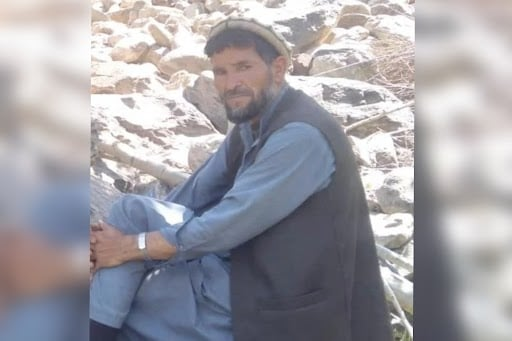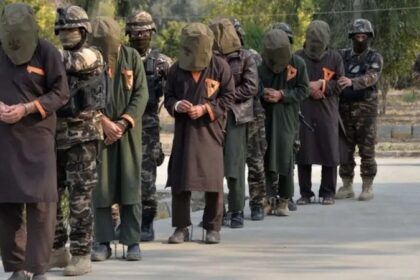RASC News Agency: In yet another chilling display of violence, Taliban gunmen executed a civilian farmer in Panjshir Province, underscoring the regime’s deepening campaign of repression against the region’s residents.
Local sources confirmed that 54-year-old Din Mohammad, the son of Khair Mohammad and a lifelong resident of Qala-Tari village in Abshar district, was shot dead by Taliban fighters on Saturday, September 27. Relatives and neighbors described him as a humble farmer with no political or military affiliations yet his life was extinguished without explanation or accountability.
The killing of Din Mohammad is neither an isolated act nor a crime of passion. It is part of an intensifying pattern in which the Taliban, incapable of governing through legitimacy, resort to terrorizing populations they perceive as disloyal. Panjshir, a province long symbolic of resistance, has borne the brunt of this vindictive strategy.
Over recent months, reports of arbitrary arrests, torture, and extrajudicial executions in the province have escalated sharply. Human rights organizations and civil society groups have sounded repeated alarms, warning that Panjshir has effectively become a zone of impunity where the Taliban rule by fear rather than law. Evidence collected over the past four years points to dozens of Panjshiris detained on baseless charges, many of whom have been tortured, disappeared, or summarily executed.
The Panjshir Women’s Movement recently reported that at least seven residents were killed by Taliban fighters in just the past two months. Earlier, the Panjshir Global Council published multiple investigative findings documenting the scale of these atrocities. Drawing on testimonies from survivors and eyewitnesses, the council concluded that hundreds of Panjshir residents have been deliberately targeted not for combat or political affiliation, but simply for their ethnic and geographic identity.
Such accounts reveal a deliberate, systematic policy of persecution that amounts to collective punishment. The Taliban, unable to reconcile their authoritarian rule with the region’s spirit of independence, have turned Panjshiris into scapegoats, criminalizing entire communities for their heritage. This strategy represents a direct violation of international humanitarian law and a stark affront to the most basic principles of human dignity.
Families of victims describe an atmosphere in which survival itself has become an act of defiance. “People are killed here not for what they have done, but for who they are,” said one Panjshir resident, requesting anonymity for fear of reprisal. The testimonies highlight a grim reality: under Taliban rule, Panjshir is being punished into submission, its people forced to live in daily fear of knock-on-the-door arrests or sudden executions.
The trajectory is clear. Far from seeking reconciliation or national unity, the Taliban are entrenching division and enmity by weaponizing identity against Panjshiris. Each killing erodes what little remains of their claim to legitimacy and exposes the regime as a machinery of repression rather than governance.
In Panjshir, the struggle is no longer merely about resistance or compliance. It has become about survival in the face of a state apparatus that views an entire population as expendable. For ordinary men and women, the demand is simple: the right to live with dignity and safety. Under Taliban rule, even this most basic aspiration remains tragically out of reach.






